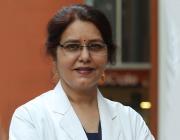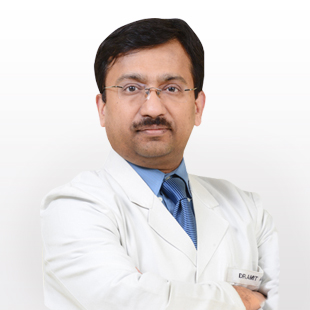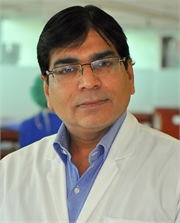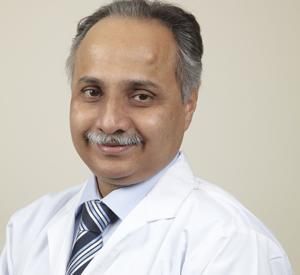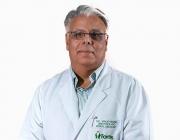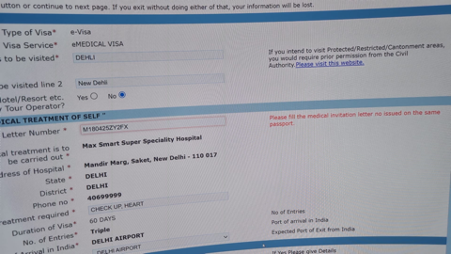About The Doctor
Dr. D’Cruz MS, DNB, FRCS( Hon) is Director Oncology Apollo Hospitals, Mumbai, Chennai and Delhi. He is a well-recognised as a global leader, clinician, researcher and teacher in Head and Neck Oncology. He was Director of Tata Memorial Hospital and Chief of Head Neck Services with over 33 years experience in the field of cancer. Dr D’Cruz is currently President Elect (2018-2020) and President (2020-2022) of the Union International for Cancer Control, Headquartered in Geneva. The UICC is the largest cancer organisation globally committed to the cause of cancer control comprising of 1121 member organisations across 171 countries. Established in 1933, he is the first Indian to hold this position. In recognition of his professional standing in the field he was awarded the Honorary FRCS from the Royal College of Surgeons London.
Specialization
- HEAD AND NECK CANCERS
- ORAL CAVITY CANCERS
- LARYNGEAL CANCERS
- THYROID AND PARATHYROID CANCERS
- LASER SURGERY
- EARLY DETECTION OF CANCERS
Awards
- Honorary FRCS from the Royal College of Surgeons London.
- Currently President Elect (2018-2020) and President (2020-2022) of the Union International for Cancer Control, Headquartered in Geneva. He is the first Indian to hold this position
Frequently Asked Questions About Oncology
How many kinds of tumours are there?
There are two kinds of tumour – Malignant & Benign. A benign tumour is more common, and is generally harmless. It doesn’t spread to other parts of body. A malignant tumour on the other hand, never stops growing unless until treated and can spread to other parts of the body. cancer is the name given to a malignant growth.
Is cancer contagious or infectious?
No. Since cancer is not caused by a germ, it is not “catching”, and cannot be transmitted from one person to another.
How does Cancer spread?
A malignant tumor is made up of cancer cells. When it first develops, this malignant tumor may be confined to its original site. This is known as a cancer in situ (or carcinoma in situ). If these cells are not treated, they may spread beyond their normal boundaries and into surrounding tissues, becoming invasive cancer. Some benign tumors are precancerous and may progress to cancer if left untreated. Other benign tumors do not develop into cancer. For a cancer to grow bigger than the head of a pin, it must grow its own blood vessels. This is called angiogenesis. Sometimes cells move away from the original (primary) cancer, either by the local tissue fluid channels (lymphatics) or in the blood stream, and invade other organs. When these cells reach a new site, they may continue to grow and form another tumor at that site. This is called a secondary cancer or metastasis.
What are the warning signs of Cancer?
The chances of curing cancer increase with early detection. The Indian Cancer Society and other organizations recommend paying attention to seven warning signs of cancer:
– Changes in bowel or bladder habits
– Unusual bleeding or discharge
– A sore that does not heal
– Indigestion of difficulty swallowing
– A nagging cough or hoarseness
– A thickening or lump in the breast or elsewhere
– An obvious change in wart or mole
A physician can detect cancer by taking medical history, performing routine check ups, cancer screening tests, imaging techniques and tissue biopsy.
What is Chemotherapy used for?
Chemotherapy is given for the following reasons:
– Shrink tumors
– Slow cancer’s growth
– Keep the cancer from spreading
– Relieve diseases related symptoms
– Prolong survival
Chemotherapy is used to treat many different types of cancer. The type, location, and stage of the cancer as well as your general health will largely determine if chemotherapy is appropriate and which agents ought to be used.
What are the benefits of taking treatment through MMT instead of directly from the doctor?
We provide services from top doctors across top hospitals to ensure that you get the best treatment.

